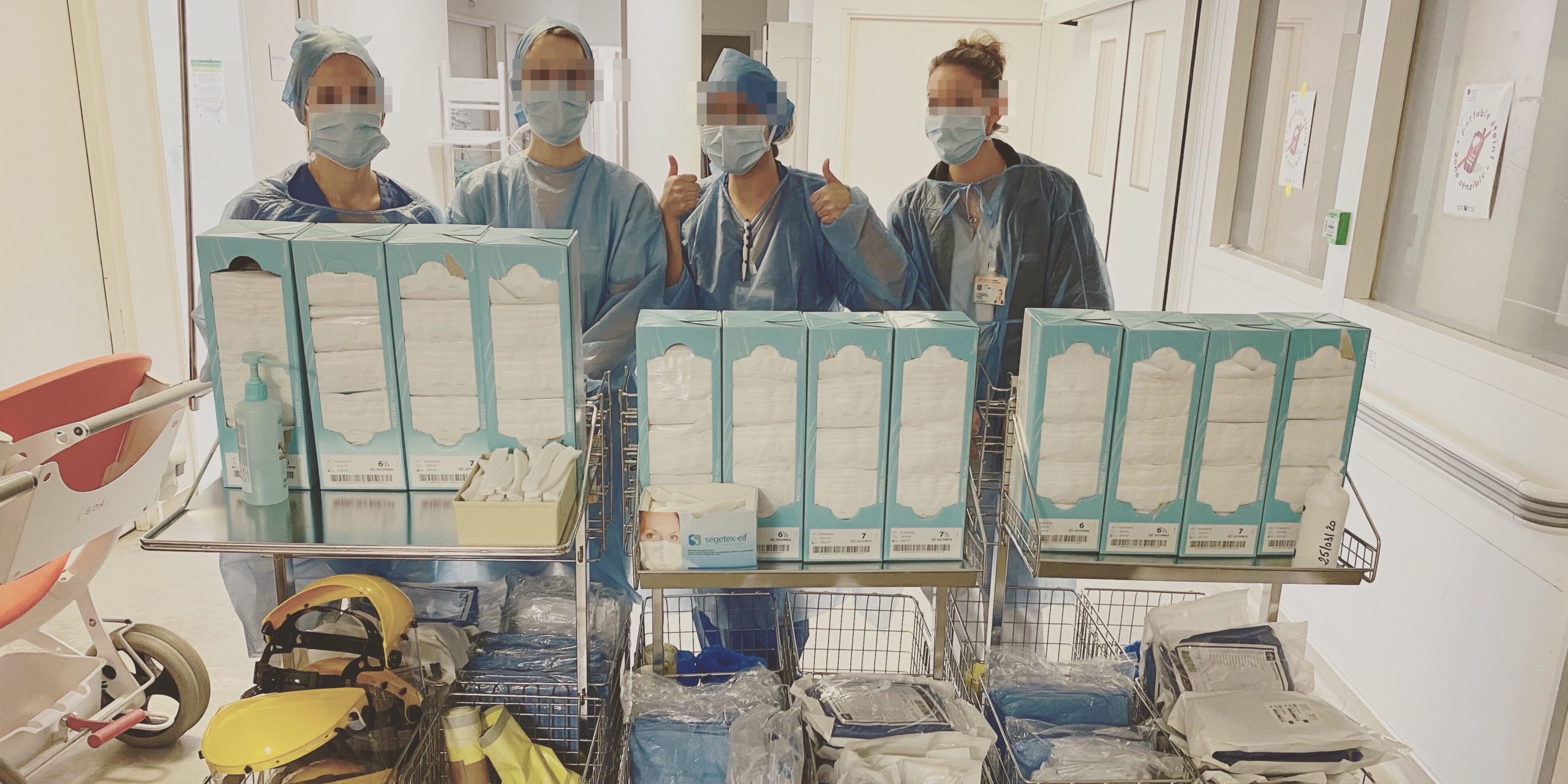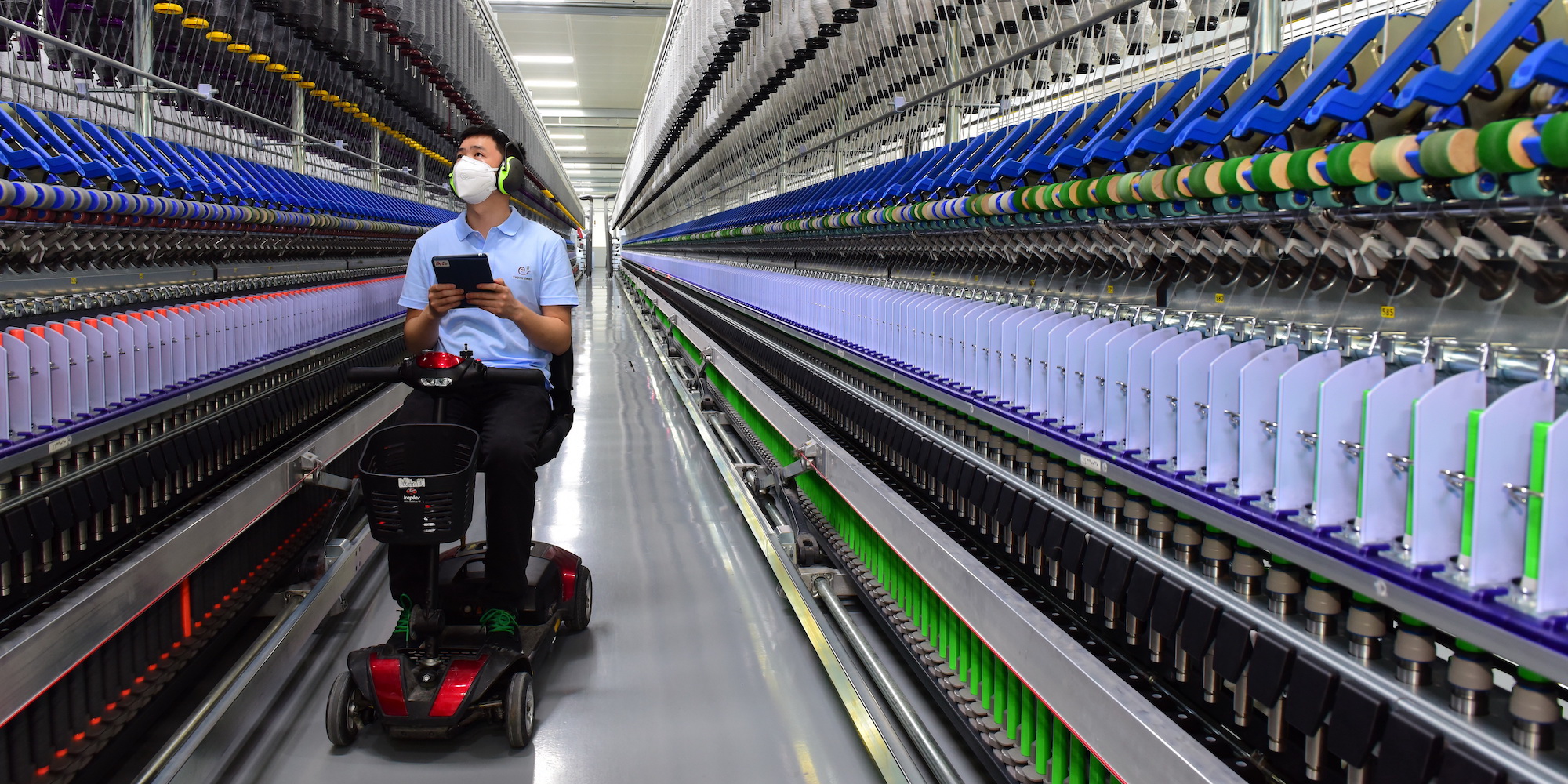
Learning fast in the crisis
NOTES FROM THE (VIRTUAL) GEMBA – This small manufacturer is relying on Lean Thinking to keep the business running during the Covid-19 crisis, overcome the disruption in its supply chain, and even innovate.
Words: Catherine Chabiron, lean author and member of Institut Lean France
Buying a company is never an easy step. But taking one over just one month ahead of a pandemic and the ensuing France-wide lockdown would be enough to unsettle even the most seasoned of leaders. Not Nicolas Guillemet, the new owner and leader, who has leveraged Lean Thinking to take a number of useful steps early on that helped the company prepare for the demand swing.
I had been corresponding with Nicolas throughout the take-over and we had already scheduled a visit, when Covid-19 showed up. We therefore decided to continue our conversation over video conferences.
PCM HabilClass is a small company located near Chartres, south west of Paris, specializing in the manufacturing of thin metal sheets. They typically serve healthcare organizations and government bodies, to whom they sell trolleys and painted steel file storage solutions. But they also manufacture stainless steel trolleys designed to carry daily supplies for labs, nursing homes or hospitals. With new wards being opened across the country in response to the Covid-19 emergency and more health supplies like sanitizing gels and facemasks having to be transported, there suddenly is a renewed interest in the trolleys.
These products are perfect for strictly-controlled environments like White Rooms, because stainless steel does not rust. The trolleys designed by PCM are ergonomic and modular (different trays and baskets can be selected and positioned as needed). Traditionally, one of my lean checks on the gemba is to compare the size of the product with the amount of value it delivers and I must say that a very large portion of the trolley volume is providing value to the customer.
GEMBA TO LEARN

Like most of us, Nicolas never anticipated that France would be put under a full lockdown only a month after he stepped in as the new leader of PCM. Luckily, his years of lean experience led him to start things off by going to the gemba, to learn about problems (find and face) and take care of people. Organizational changes can be tempting when a new leader steps in, but they seldom help. Lean Thinking rather teaches us to focus on the flow of products and services to customers and observe what hinders the work of those operating along that flow.
“I started with safety and the ergonomics of workstations, as I saw obvious needs there. But I did not decide on my own: I had long discussions with the operators on how best to illuminate some of the welding stations, to make the work easier and improve the quality of the welding, or what basic safety equipment was needed,” Nicolas tells me. From the very beginning, he also scheduled himself for a daily morning safety tour around the plant.
Nicolas’s daily observation routines were a major change from the previous owner and leader, who led different parallel activities and was rarely seen on the gemba. The daily walks and exchanges may not have been enough to build trust in such a short period of time, but they certainly started a number of critical conversations between management, operators and support functions.
When the lockdown started, this focus on safety and gemba really helped. PCM implemented the new social distancing and sanitizing measures for those who had to remain at work (manufacturing and supply chain) and had everyone else work from home (engineering). Nicolas continues his daily morning tour, but now runs a daily meeting in the area first – offering enough space for people to keep social distancing. During the meeting, he asks team members how they are feeling and if they are experiencing any issues and discusses the tsunami of pandemic-related information everyone is subject to. This helps to clarify information, investigate misconceptions (even fake news), and generally tackle the generally high level of anxiety before resuming work.
A SUPPLY CHAIN THAT FAILS TO DELIVER
Before the crisis, file storage solutions represented 70% of PCM’s activity. With the customers’ new urgent needs, however, demand has completely shifted to stainless steel trolleys to carry hospital supplies. The PCM workshop was not designed for this new product mix, and neither was supply. As Nicolas walked the gemba and discussed the problem with operators, a number of issues cropped up:
- Some of the parts historically came from northern Italy and the supplier there was unable to supply, either because they had closed or because transportation was unavailable. Could PCM not find a closer supplier?
- Some of the components, such as screws, were very specific and supplied from Asia: why should they? Could Engineering find a more standard substitute?
- Palletization choices made shipments too bulky and hard to accommodate in a context of rarefied transportation offers. Could PCM reduce the pallet footprint in order to secure shipping?
“Our supply chain was far from lean and this is why it failed us,” Nicolas sighs during our video call. “Luckily, we managed to find local suppliers and transporters and we are now completely rethinking our approach to these three issues. At a time like this, how can you tell hospitals that the lead-time for the trolleys is 6 weeks? They need these products now!”
Because some key suppliers could no longer deliver and to shorten its lead-times while maintaining the same quality, the company decided to insource some activities – such as the production of wire baskets. They managed to reduce the lead-time for stainless steel trolleys from six weeks to two weeks.

CONFIRMING REAL CUSTOMER NEEDS
Nicolas is a long-time member of the Lean Engineering Academy, a community of practice here in France. One of his learning points, stemmed from conversations with fellow members, was the need to design products during the crisis that are easy to supply and assemble, so as to gain on lead-time and quality. More than ever, for each new design Nicolas strives to ask this question: “What do we keep as a standard, proven and reliable fixture, and what do we change to offer value and gain a competitive advantage?”
Just last week, he learned another invaluable lesson, when a hospital buyer contacted him to urgently request 12 trolleys that could not be supplied by their usual supplier for another four weeks. She showed him the pictures: it was a product PCM had never made. Nicolas turned to his engineering and production teams and asked them whether they agreed to meet the challenge, and they did. Within a week, using only a picture of the competitor’s product, the team was able to design the model as expected, draw a plan and build the 12 units requested. When I last spoke to Nicolas, he was driving back from the hospital where he had them delivered – a mere four days after the order had come through.
But the most interesting (and lean) part of the experience is that, by working hard as a team on the new model and through discussions with users in the hospital, PCM learned loads about their existing offering:
- Their trolleys take too much space. Most are used for delivery to different wards and are often left in the corridors while the delivery takes place: therefore, too large a trolley will impede the circulation of stretchers. The team will need to review their standard sizes.
- The stainless-steel wire baskets offered some advantages, such as the possibility to hang out things on the sides of a trolley, but manually cleaning the wires takes too long in the hectic day of healthcare professionals fighting Covid-19.
- PCM teams had assumed that stainless steel was essential, but it turns out that painted steel does the job too, while offering simpler and larger production options.

TIME TO LEARN... AND TO GIVE
The teams at PCM are also working to adjust the workstations and prepare them for the new product mix. With the overall volume of sales decreasing by 20-25%, the lockdown seems to be the perfect opportunity to revamp the workshop and learn how to better organize it.
Nicolas tells me how they have developed a dojo to practice the welding, for example. A flawed welding increases the risk of germs nesting and cumulating in a hollow that might be hard to reach during cleaning. I am impressed by how quickly and eagerly this small company is adjusting to new customer needs.
Workshops are also conducted to improve workstations. For example, a team of people from production and engineering is currently working on the ergonomics of the welding workstation, to reduce the effort and time needed to reposition and fix the trolley each time a new area that needs welding has to be reached. Because the engineering team is working from home, they use simple messenger or video conferencing tools to exchange ideas on plans and features. The idea is to design a pivoting welding station that will no longer require the manual repositioning of the trolley by the operator.
The situation out there is uncertain and nobody knows when normal conditions will be restored, but while we all await better times the team at PCM HabilClass is embracing the lean idea that it is a responsibility of a business to now only serve customers and respect employees, but also to be a good neighbor to the community. With this in mind, employees have agreed to donate the little stock of masks they had to the local doctor’s practice, and some of the stainless-steel trolleys have been given or lent to nearby hospitals.
By the time the economy restarts, swings in the product mix, urgent deliveries and changes in customer expectations will be an every-day occurrence, which is why Nicolas is giving his teams time to learn and improve. More than ever, flexibility will be the name of the game.
THE AUTHOR

Read more



INTERVIEW - Anton Ulanov is the CEO of one of the largest agricultural businesses in Russia. He talks with PL about the application of lean at Agroholding Kuban, discussing the wider challenges and opportunities for lean in agriculture.


FEATURE - The editorial board members of Planet Lean reflect on the magazine's origin story and its role within and contribution to the Lean Community.


FEATURE – Sometimes you just need to get creative: as part of its flexible manufacturing model, Esquel introduced a new role on its shop floor – the “mangineer”.


INTERVIEW – A private healthcare group in South Africa has carefully studied the unique challenges it faces and customized its approach to improvement accordingly, embarking on a lean journey to better patient care.

